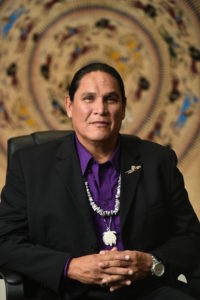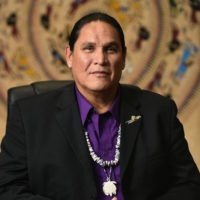The Impacts of an Industry – Tribal Government Gaming Paving a Path for Generations
 The Indian gaming industry has steadily and responsibly grown over the past four-plus decades. While traditional gaming is weaved in our cultural, social, and economic history throughout time, Tribal government gaming was started as a means to advance the economic growth by creating critical jobs for Tribal citizens. Through this, today’s Tribal government gaming industry has expanded to major resorts catering to neighbors and tourists alike. Through it all, our industry remains uniquely grounded to serving a purpose that honors our ancestors and our generations to come.
The Indian gaming industry has steadily and responsibly grown over the past four-plus decades. While traditional gaming is weaved in our cultural, social, and economic history throughout time, Tribal government gaming was started as a means to advance the economic growth by creating critical jobs for Tribal citizens. Through this, today’s Tribal government gaming industry has expanded to major resorts catering to neighbors and tourists alike. Through it all, our industry remains uniquely grounded to serving a purpose that honors our ancestors and our generations to come.
Indian gaming is not a profit-driven business with accompanying corporate boards, dividends, or emphasis on quarterly revenues. Instead, Indian gaming is driven by Tribal governments solely dedicated to the Native communities they serve. Providing a better standard of living ensures our future generations will have similar economic opportunities throughout Indian Country.
Today, there are 252 Tribal Nations engaged in gaming. They generate more than $39.1 billion (gambling and ancillary) in gross revenue annually. While many of our operations remain workhorses for their community, serving as critical job creators for rural communities throughout the nation, some operations are world-class destination resorts. And in recent years, several Tribal governments have gone global. The Mohegan Tribe owns an interest in a casino in South Korea, while the Seminole Tribe of Florida is the sole owner of the worldwide Hard Rock brand.
The Indian gaming industry is a net job creator. Nationwide, Tribal government gaming generates more than 350,000 direct American jobs annually. When indirect jobs are included, our industry employs nearly 767,000 Americans. This means that all Americans benefit from these job opportunities, but it is important to note that Indian gaming is working to bring entire families back to Indian Country for the first time in generations.
Revenues generated from Indian gaming work throughout Indian Country to improve education, health care, public safety and justice, and other essential community services. For more than four decades, Indian gaming has worked to rebuild roads, water and communications systems, schools, hospitals, community and cultural centers, and much more of our rural infrastructure.
So, while the Indian gaming industry has come a long way, and in some cases is going global, we remain focused on a mission that constantly seeks to honor the sacrifices and endurance of our ancestors who always advocated to protect the Sovereignty of Indian Nations. There are now more jobs and professional opportunities for our communities than ever before. This is paving a bright path for the next seven generations.

